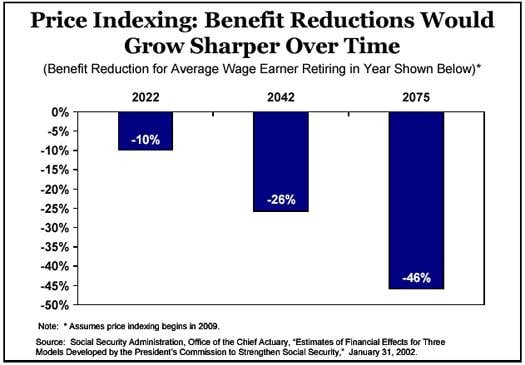I
Itsthetruth
Guest
Democratic Senator Kent Conrad Calls For Social Security Sacrifices!
Finding Common Ground on Social Security Reform by Senators Kent Conrad and Lindsey Graham
January 5, 2005
Senator Conrad is a Democrat from North Dakota. Senator Graham is a Republican from South Carolina.
"With a renewed debate over the future of Social Security now underway, Republicans and Democrats alike need to begin by setting aside our differences and focusing on the common ground between us.
.... strengthening Social Security will require tough choices and, if done in a responsible manner, can greatly improve our nation's fiscal outlook. Acting sooner will give us more time to adjust and allow for more gradual solutions to be adopted. But there are no easy answers. To address Social Security's funding challenges, all options should be on the table for discussion.
Both parties have been far too hesitant to ask the American people to make sacrifices for the common good. It is our belief the American people, if asked in a responsible manner, will embrace the hard choices necessary to save Social Security for younger workers and future generations.
It is time to address this problem. Social Security must be preserved and strengthened. But we need to be candid about the costs and willing to make the tough choices that real reform will require. If Republicans and Democrats can agree on this, we can save a vital program for generations to come."
http://conrad.senate.gov/~conrad/releases/04/12/2005105...
Senator Conrad flew with George Bush on Air Force One on a flight from Washington, D.C., to Fargo, North Dakota and discussed Social Security with him. Senator Conrad said: "I've accepted the President's invitation to accompany him to Fargo and I will be there to welcome him. We'll have a chance to discuss Social Security. As I've made clear, there are places where I agree with the President, and there are places I have concern with the President's plan".
Senator Conrad has not yet indicated what kinds of "sacrifices" he thinks working people should make in order to "save" Social Security. While against privatization, perhaps Senator Conrad favors some of the other proposals Bush is suggesting such as raising the retirement age or changing the formula used to calculate benefits. Calculating benefits based on price increases, as Bush favors, rather than wage increases could cut future benefits as much as 60%!
So if Bush's privitization scheme fails, will some Senators go along with Bush options to cut social security benefits? I bet some will. And Senator Conrad seems like a prime candidate to find "common ground" with Bush and the Republicans to cut benefits and tighten eligibility requirements.
Finding Common Ground on Social Security Reform by Senators Kent Conrad and Lindsey Graham
January 5, 2005
Senator Conrad is a Democrat from North Dakota. Senator Graham is a Republican from South Carolina.
"With a renewed debate over the future of Social Security now underway, Republicans and Democrats alike need to begin by setting aside our differences and focusing on the common ground between us.
.... strengthening Social Security will require tough choices and, if done in a responsible manner, can greatly improve our nation's fiscal outlook. Acting sooner will give us more time to adjust and allow for more gradual solutions to be adopted. But there are no easy answers. To address Social Security's funding challenges, all options should be on the table for discussion.
Both parties have been far too hesitant to ask the American people to make sacrifices for the common good. It is our belief the American people, if asked in a responsible manner, will embrace the hard choices necessary to save Social Security for younger workers and future generations.
It is time to address this problem. Social Security must be preserved and strengthened. But we need to be candid about the costs and willing to make the tough choices that real reform will require. If Republicans and Democrats can agree on this, we can save a vital program for generations to come."
http://conrad.senate.gov/~conrad/releases/04/12/2005105...
Senator Conrad flew with George Bush on Air Force One on a flight from Washington, D.C., to Fargo, North Dakota and discussed Social Security with him. Senator Conrad said: "I've accepted the President's invitation to accompany him to Fargo and I will be there to welcome him. We'll have a chance to discuss Social Security. As I've made clear, there are places where I agree with the President, and there are places I have concern with the President's plan".
Senator Conrad has not yet indicated what kinds of "sacrifices" he thinks working people should make in order to "save" Social Security. While against privatization, perhaps Senator Conrad favors some of the other proposals Bush is suggesting such as raising the retirement age or changing the formula used to calculate benefits. Calculating benefits based on price increases, as Bush favors, rather than wage increases could cut future benefits as much as 60%!
So if Bush's privitization scheme fails, will some Senators go along with Bush options to cut social security benefits? I bet some will. And Senator Conrad seems like a prime candidate to find "common ground" with Bush and the Republicans to cut benefits and tighten eligibility requirements.


 is described by the very article you posted.
is described by the very article you posted.